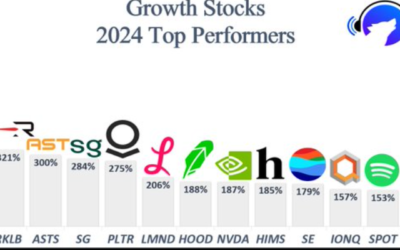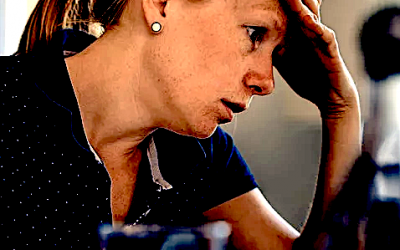"We are unified in our humanity, and the only thing that we all know and we all appreciate in one another is kindness, and this has to come before all things," Lady Gaga said.
Hello your Holiness. It's so nice to be with you. We're so happy to have you here today and so very grateful to hear your perspectives and your philosophies on the world. I have some questions here that were taken from young and old people all over the world from social media. We've asked them to give us their thoughts and questions about humanity that they would like to ask you. Bridget Wilson asked 'How do you help young people address issues of poor self-esteem, managing eating disorders, addiction, self harm and suicide.
Basically, I have the view and also the involvement of the societies way of life. I feel there is too much materialistic life, too materialistic a culture. And then most important in our education system. Not much talk about our inner value. So in spite basic human nature according to scientists, more compassionate. Compassion is part of our life. Not cultivated from birth. That's there. But existing education system is very much oriented about external values so I think societies and generations who come through from education will eventually create a more materialistic life and culture. So I think maybe I am wrong, I cant say my view is 100% right. I don't know, thats for young people to check and investigate according to their own experiences. These problems I think are due to a lack of humility about compassionate feeling part. Too much self centred. Their life not free from problem. Problem always there. But their own mental attitude is the key factor. Your mental attitude is sound with self-confidence and fore-sightedness. But then these problems, are on the surface of our mind, or emotions. Yes we feel uncomfortable about something. But on the deeper level, we have the ability to keep calm. So the youth, the young people, like you, the future is on your shoulders. Not my shoulders. I'm ready to say bye bye. So, the future depends on the younger generations. And the other thing is the past, nobody can change. Future is yet to come so existing environment I feel unhealthy. So we, the younger generation, have to create a more healthy environment. Through that way, the younger generation, the future generation will be more complete in their thinking as a person. By that I mean physical comfort, material facility, mental comfort from our inner strength - thats mainly compassion, as I mentioned earlier. So our beautiful brain and our own heart must combine. Then that person can be very happy, calm and no need to rely on drugs or some other things. So then I think, when you show more concern for others well being, then you get the feeling that you are adding something useful to others. That brings more self confidence and meaningful life. Otherwise, lonely. Look here, you cannot trust. Look there, cannot trust. Then you sometimes feel helpless and discouraged and then suicide.
Lady Gaga:
So what your saying is that caring for others and having compassion, gives you a sense of purpose so it helps you to feel less alone. And Alienated because you know that we all belong together.
Dalai Lama:
That's right. Basically we are social animals. So the individuals future is entirely dependant on interacting with the community. No matter how intelligent, rich...Every place can be lonely. Even just for one week can be very difficult. So our very life sort of depends on the rest of the community. Now, today, reality, everything is interdependent, interconnectedness. So we need a sense of oneness with humanity. Think of other people. Otherwise there is too much we vs they. That breeds violence. The community level, the national level, the violence, it comes. And on the basis of too much feeling of we vs they. And then, short sightedness. And also ignorance, I feel and lack of compassion, then its fear or destroy your enemy. Thats your victory. The enemy is a human being. That is part of humanity. That's my view. If it's of interest or not, is up to the individual. But my interest is to express the experiences of an 81 year old person. Quite a lot of experiences. So I think my experiences are much bigger than your experiences.
Lady Gaga:
So then, would it be fair to say, that if one person is sick that the whole body of humanity is sick and that it is important to keep us healthy and detoxify humanity in order to clean and purify our future.
Dalai Lama:
Yes, we are social animals. Some are mentally sick then it spreads easily. So its a problem of human being Must be solved by ourself. Not alone by prayer or these things. Then also, the problem, related to physical problem which relates to mind, the problem related with physical compared to problem of mental state, the physical level is not superior. The mind is superior. Obviously! According to our own experience mentally happy, sound. Physical illness you can subdue. Mentally, too much weight, anxiety. Physical comfort will not subdue. So therefore the time has come and we have to pay more attention to our inner value and should know the method or the right approach to strengthen our inner value.
Lady Gaga:
There is a sense of protection of one another in our human dignity. This is our responsibility to care for one another.
Dalai Lama:
Right.
This question is from Joshua. Which meditation practice have you found to be the most fruitful and what can you say about creating effective meditation practice?According to Indian tradition. Meditation, two types.
1 is single pointed focusing on a certain thing or just remain in that clarity of mind. Just remain there.
Another meditation is Analytical meditation. Analyze, analyze.
These meditation although the information, explanation comes from religious texts, but it's something applicable into our daily life.
The scientists, the researchers they are actually implementing analytical meditation. Investigate, investigate, investigate. So the subject analytical meditation about what matters, analytical meditation about our inner world. So for me, I must say I'm a poor practitioner of meditation. I'm now 81 years old but progress not much, very little but better than none.
So therefore, for me, analytical meditation is much more powerful.
The single pointed meditation, sometimes I describe as being like a tranquilizer. For a short moment, peace. But then after that, again you see the problem. The restlessness comes.
The analytical meditation, you see, analyzes what the cause is of the suffering. External thing or internal thing, then you will realize ultimately your own mental attitude, I think two persons. They have the same problem. But the feeling could be big differences. One person has the same illness, the same problem. But mentally they have the ability to deal with that problem. Much happier.
Lady Gaga:
Do you believe that meditation is also a way to calm humanity?
Dalai Lama:
Yes, yes. We all have the potential. Whether its warm heartedness is the foundation of human survival, including our health. More healthy mind then ultimately a more healthy body. In that respect I can tell you, according to my own experience, like age as I mentioned earlier, 81 year old, and my life going through a lot of problems. A lot of causes of anxiety or fear or anger even. But my mind is always calm. That is a result of the analytical meditation. According to, I am Buddhist practitioner, according to Buddhist technique or method. I think you can judge my face, nothing special medicine, a little yoga, not much. But maybe I found peace of mind. It really makes a difference.
Lady Gaga:
This is important for people to hear because they associate meditation and yoga with religion or political background or race or colour, but what you're saying is that it's a state of mind where we're returning to the inner peace that we're born with as children. And I think it's important for everyone to remember during such inflammatory times, violence, lots of illness, people becoming angry and full of fear, that we have to cool the system down. It's about less heat and more cooling.
More relaxation, but also thoughtful and strategic.
Dalai Lama:
That's right. I believe, and also accordingly, I'm telling and sharing with other people, that the ultimate source is already here <motions to his chest> . The only problem is wether we recognize that or not or exploit that potential within ourself, from birth. We already have this potential there.
Lady Gaga:
This question is from Udra Fortner. How can I feel at peace with all this horror in this wonderful world? I need peace of mind. I'm losing it.
It's understandable and again, according to my own experience. Once you have this philosophy and a tragic situation happens, then, not a void, but look at it in a deeper way, in a wider way, then there are some tragic things there. But at the same time on this planet many positive things, many happy things there if you look with a wider perspective and then frustration from the tragic situation, that becomes something part of that, not all. So when some problem you see happen, if you look real closely, then it appears unbearable. The same problem, looked at from a distance, with a wider perspective then yes its a problem I have to face but ok there are other very positive things there so I should not have a loss of hope. If there is no hope then humanity is really negative. Then we don't need any worries about population increasing!
So we need hope to keep the world going?
Most people take a class or two to get started, but a simple mindfulness exercise could involve only 10 minutes of your day.
To begin, eliminate distractions that might jeopardize your focus.
This means being without your phone for a few minutes, and to begin the practice of quieting your mind and focusing on your breathing: Focus on your breath and how it goes into and out of your body. If your mind starts to wander, bring your focus back to your breathing. Focusing gets easier the more you do it. Starting might be the most challenging because that is when our minds are likely to be the most active and full of internal dialogue and self-talk. As you begin to quiet that down, it does get easier not just in that moment but also with repeated practice like a flexing a muscle. Most people in North America aren't as mindful as they could be and this can make it all the more challenging and all the more beneficial.
In their 2010 study, they created a computer program that sent questions at random moments to people by iPhone. The program asked,
"How are you feeling right now?"
"What are you doing right now?"
"Are you thinking about something other than what you're currently doing?"
You may be thinking, what's wrong with autopilot? Multitasking may be your go to default form of functioning, but those in the study who reported regular mind-wandering were unhappier in that state than those with laser-like focus.
Making Mindfulness Great Again
That sharpness is real, science has found.
Change your brain
Mindful Marines
Focus People
Evidence suggests that mindfulness training can improve students' standardized test scores, attendance and discipline. But it also works for adults.


























